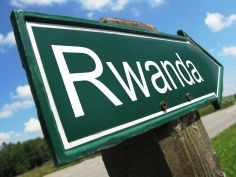
On the twentieth anniversary of the genocide that burned to ashes Rwanda, Vincent Huck talks to John Munga, acting chief executive of the national accountancy body, built from scratch in the aftermath of the conflict
Twenty years ago, between April and June 1994, an estimated 800,000 Rwandans were killed in the space of 100 days. It all started on 6 April 1994, when the plane of president Habyarimana was shot down, unleashing violence built on decades of tensions between Hutu and Tutsi, the two main ethnic groups of Rwanda.
A hundred days later, while the international community and the former colonising powers had turned a blind eye on the genocide, the Rwandan Patriotic Front (RPF) led by Rwanda’s current president Paul Kagame entered Kigali, the capital city, stopped the genocide and took over a country in ruins.
The Institute of Certified Public Accountants of Rwanda (iCPAR) acting chief executive officer John Munga remembers: "At that time Kigali was a sad city where the buildings were shambolic and not painted. Everything was chaotic, the roads had potholes, some of the buildings had no roofs, there were no toilets, simple and basic things were not there."
But 20 years later Kigali has become an active metropolis with a strong urban planning and a booming economy. "Now things are in place and the city is continuously growing, with a lot of investments coming in," Munga says. "We have a very low corruption rate and there is no more insecurity."
The transformation of the capital city comes from the government’s development strategy for the country outlined in a program entitled Vision 2020. The aim of the program is to transform Rwanda from a low-income agriculture-based economy to a knowledge-based, service-oriented economy by 2020.
How well do you really know your competitors?
Access the most comprehensive Company Profiles on the market, powered by GlobalData. Save hours of research. Gain competitive edge.

Thank you!
Your download email will arrive shortly
Not ready to buy yet? Download a free sample
We are confident about the unique quality of our Company Profiles. However, we want you to make the most beneficial decision for your business, so we offer a free sample that you can download by submitting the below form
By GlobalDataAnd so far signs of results have been impressive. Between 2001 and 2012, Rwanda’s real GDP growth averaged 8.1% per annum, according to the World Bank. The poverty rate dropped from 59% in 2001 to 45% in 2011. Despite a sharp decline in aid in 2012, Rwanda’s economy grew by 8% and inflation was contained below 6%.
The Rwandan accounting profession also had to be started from scratch. iCPAR was established by law in 2008 and its secretariat actively started in 2011. "Up until then the profession wasn’t regulated," Munga says. "And up to today all the certified public accountants in Rwanda have qualifications from outside as we didn’t have local qualification."
But through a partnership with CPA Ireland, iCPAR has developed syllabus for two qualifications: certified public accountants and certified accounting technicians. The first qualifications are expected to be delivered in June 2015.
But qualified accountants weren’t the only thing missing for a flourishing accounting profession in Rwanda. "In this country even in the banks there was no culture of accounting and accountancy," Munga explains. "Bank statements were not relevant, so we had to start from scratch with everything from bookkeeping to auditing."
The government was no longer collecting taxes, he continues. "So equally the revenue and tax authority had to be built from the ground up."
iCPAR is also the regulator and to that effect, the secretariat established a Quality Assurance (QA) review system for auditors in Rwanda with the first cycle of reviews currently being performed in Q1 of 2014.
Even if the Rwandan profession is at its early age, Munga is confident that it will rise to become one of the leading professions on the continent. "Rwanda is a land of opportunity," he says. "We have a lot of people coming from the neighbouring countries to invest in our country. For example Ugandan and Kenyan universities have opened branches in Rwanda to fill the demand gap."
Rwanda is working to become a service hub in Africa, he continues. "This includes financial services and we already see people from Goma and Bukavu, cities in neighbouring Congo, crossing the border to open bank accounts in Rwandan banks."
Asked if Rwanda could serve as an example for the rest of the continent, Munga is quick to answer: "We already are an example, as I said a lot of people from across Africa are coming to Rwanda to learn. And to learn basic things, such as how not to litter your street."
Related story
World Survey 2014: The quest for transparency






